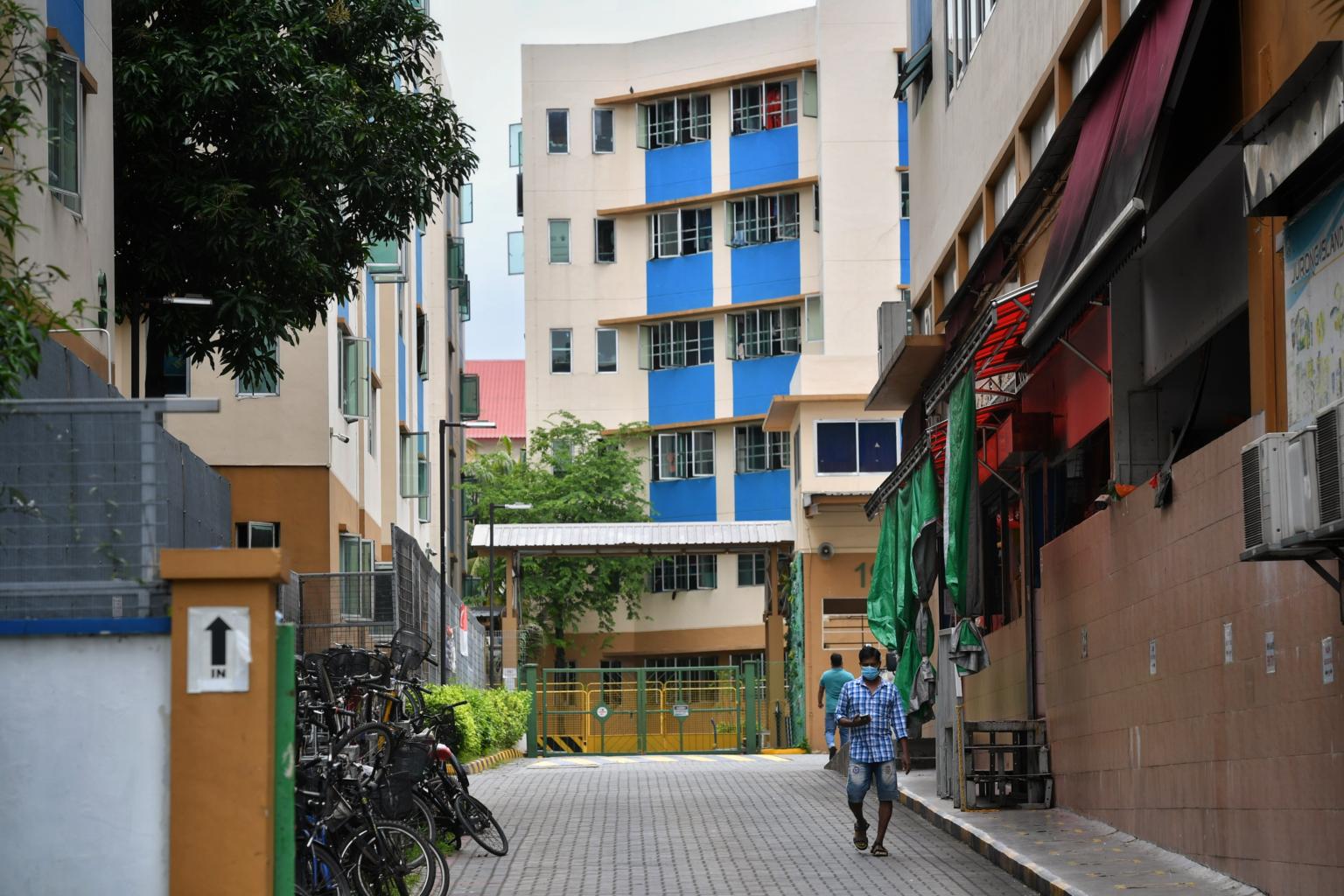Law for authorities to quickly impose disease control measures to cover all dorms by year end
Sign up now: Get ST's newsletters delivered to your inbox

Currently, all dormitories are subject to a set of requirements laid down by various government agencies.
ST PHOTO: CHONG JUN LIANG
Follow topic:
SINGAPORE - The Foreign Employee Dormitories Act (Feda), which allows the authorities to more quickly impose infection control measures in worker dormitories during a disease outbreak, will be expanded to cover all dorms by the end of the year.
Senior Minister of State for Manpower Koh Poh Koon said in Parliament on Tuesday (March 8) that more time is needed for the Ministry of Manpower (MOM) to engage the more than 1,000 dormitories currently not covered under the law.
He was replying to MP Louis Ng (Nee Soon GRC), who asked for an update of the Feda review announced in March last year, and which was meant to be completed in the second half of 2021.
"The significant number of dormitory beds across a diverse range of housing types and the broad landscape of operators necessitate more time to engage these groups to better understand the infrastructure constraints and the impact of the licensing requirements, especially on smaller dormitories," Dr Koh said.
"We intend to implement the expansion of Feda by the end of the year and will share more details on the expansion in the coming months," he added.
Currently, all dorms, including those not regulated under Feda, are subject to a set of requirements laid down by various government agencies, covering areas such as building and fire safety, and minimum living and hygiene standards.
Feda, which came into force in 2016, imposes additional requirements on dorms in areas such as public health and safety, security and public order, and the provision of social and commercial facilities and services. It currently applies only to larger dormitories that accommodate 1,000 or more workers.
About two in five of the 280,000 migrant workers living in dorms currently stay in those that are not covered by Feda. These are smaller dorms that include temporary quarters at construction sites, dorms converted from factories, non-government shelters and other temporary quarters, which during the pandemic had to have additional requirements imposed via a separate legal route through the temporary Covid-19 Control Order for Foreign Employee Dormitories.
Dr Koh said MOM is also in the process of consulting various stakeholders to forge new, higher standards for future dorms and study how access to primary healthcare can be better provided to migrant workers.
Mr Ng asked if the ministry is providing support to smaller dorms to help with the transition, since many of them have been waiting for the implementation details for some time.
Responding, Dr Koh said MOM is developing a transition plan and will make sure all dorms have enough time to make the conversion.

